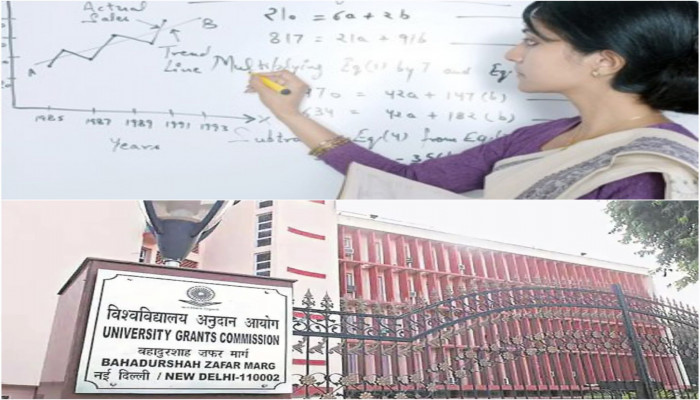UGC relaxes rules for hiring contract teachers, expands VC’s eligibility to non-academics
- In Reports
- 09:53 PM, Jan 07, 2025
- Myind Staff
India's University Grants Commission (UGC) has undertaken essential reforms to promote flexibility in higher education recruitment and leadership selections. These reforms include streamlining the recruiting procedure for contract instructors and increasing eligibility for the Vice-Chancellor (V-C) position to include persons from non-academic backgrounds.
Under the new standards, universities and colleges can more easily hire contract professors, seeking to ease faculty shortages and bring industry expertise for specialised courses. This approach is designed to improve the educational experience by incorporating practical knowledge from various professional domains of study.
"The Chancellor/Visitor shall constitute the Search-cum-Selection Committee comprising three experts," the new regulations define. Previously, the regulations stated that the selection for the position of Vice-Chancellor should be made through proper identification by a panel of 3-5 people created by a Search-cum-Selection Committee, but did not define who would comprise the committee.
Governors of states that serve as Chancellors of state institutions now have more authority over the selection process and have the last say on V-C appointments. The draft rules further warn that non-implementation may result in an institution being barred from participating in UGC initiatives or awarding degree programmes.
Additionally, the UGC has widened the criterion for Vice-Chancellor appointments, enabling people with extensive experience in administration, industry, or public service to be considered. This project strives to bring fresh viewpoints into university leadership, stimulating innovation and aligning academic institutions with modern global norms.
The modifications are part of the UGC's continuous attempts to modernise India's higher education system, making it more responsive to changing educational requirements and industrial demands. The UGC strives to improve the quality and relevance of higher education nationwide by making it easier to include varied expertise in teaching and leadership roles.
While some have praised the revisions for their potential to modernise the school system, others have expressed concerns. Critics are concerned about the potential loss of academic severity and the long-term influence on educational quality. Teacher unions, in particular, have expressed concerns about the increased use of contract-based appointments, citing threats of job instability and irregular remuneration.
The UGC defended its judgement, emphasising the importance of adaptation in a rapidly changing educational context. These revisions are a big step forward in India's efforts to restructure its higher education system and fit the objectives specified in the National Education Policy (NEP) 2020.







Comments